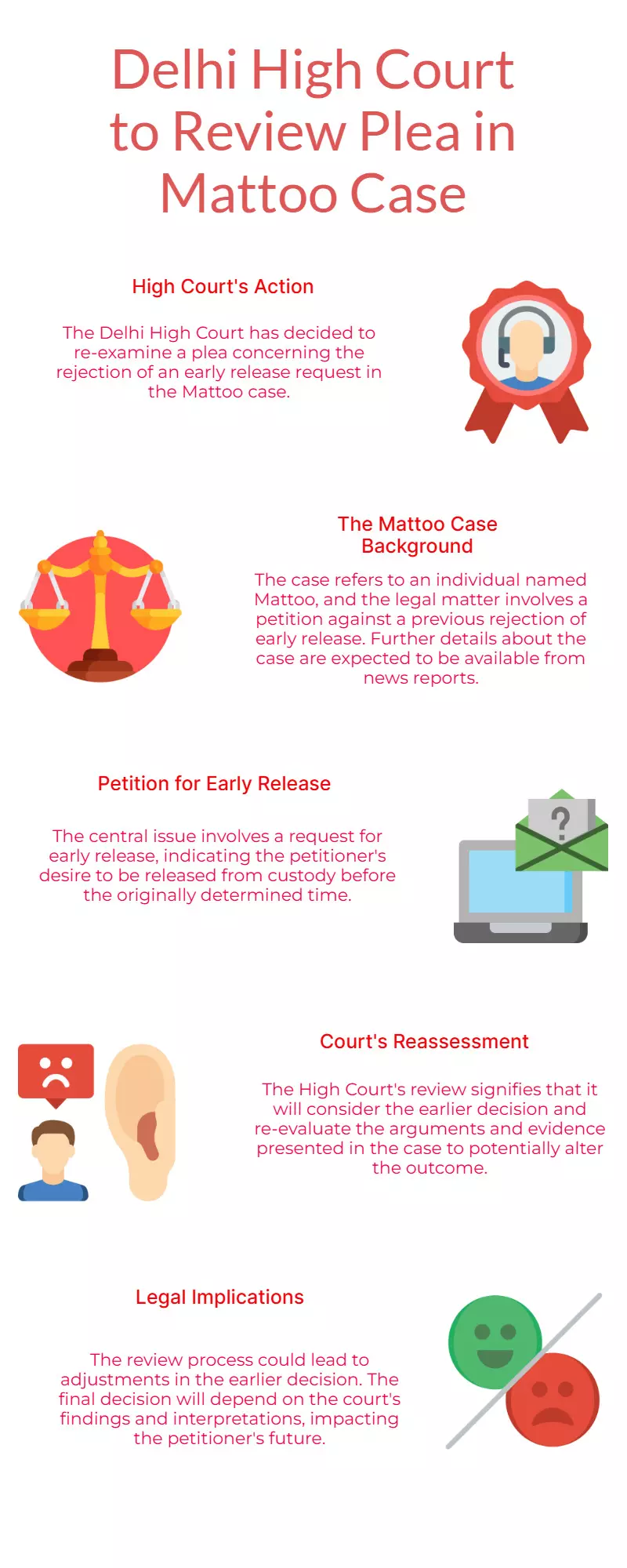Delhi HC seeks review of plea rejecting early release in Mattoo case

By : Krishna Mishra
The court ruled that the SRB’s 2024 decision was passed without proper application of mind or a reasoned assessment of Singh’s reformative progress.
The Delhi high court on Tuesday set aside the sentence review board’s (SRB’s) decision to reject the premature release of Santosh Kumar Singh, serving a life term for the 1996 rape and murder of law student Priyadarshini Mattoo.
The court ruled that the SRB’s 2024 decision was passed without proper application of mind or a reasoned assessment of Singh’s reformative progress. In a detailed judgment, justice Sanjeev Narula came down hard on the SRB, criticising its vague reliance on an indeterminate “etcetera” while listing the grounds for rejection, and terming its reasoning that prison conduct is no indicator of post-release behaviour “deeply problematic”.
The judge held that the SRB’s decision suffered from “patent illegality” and failed to evaluate Singh’s demonstrated efforts toward reformation, including his educational achievements, documented good conduct, participation in rehabilitation programmes, and his current placement in an open prison.
While refusing to grant immediate release to Singh, the court remanded the matter back to the SRB, directing it to hold a fresh meeting within three months and deliver a reasoned decision within four months.
The murder of Priyadarshini Mattoo was one of the most sensational and closely watched criminal cases of its time, capturing national attention for its chilling details and the long, tumultuous legal journey that followed. A 25-year-old law student, Mattoo was raped and murdered in her Delhi home in January 1996, with suspicion quickly falling on Singh, a law student and the son of a senior police officer, who had allegedly been stalking her.
Despite the weight of evidence, a trial court acquitted Singh in 1999, citing “inadequate investigation”. This sparked widespread outrage and public protests over perceived misuse of power and miscarriage of justice. In 2006, the Delhi high court overturned the acquittal and sentenced Singh to death, calling it a “rarest of rare” cases. However, in 2010, the Supreme Court upheld his conviction but commuted the death sentence to life imprisonment.
Singh had approached the high court in 2021 against the SRB’s rejection order of his remission plea. Subsequently, his similar requests were shot down in 2023 and 2024 as well, which he assailed.
Puncturing holes in the SRB’s decision, justice Narula held: “Not only did the SRB use an indeterminate ‘etc.’ while listing relevant aspects (in rejecting the remission plea), it also stated that ‘the conduct of the convict in jail is not necessarily a barometer of what he may do outside prison.’ This line of reasoning is flawed.”
“Though the gravity of the offence and views of investigating agencies matter, they cannot override post-conviction conduct, evidence of reform, and institutional assessments like placement in an open prison,” said the court, adding that the rejection order reflects neither meaningful application of mind nor a reasoned analysis of the petitioner’s reformative efforts.
